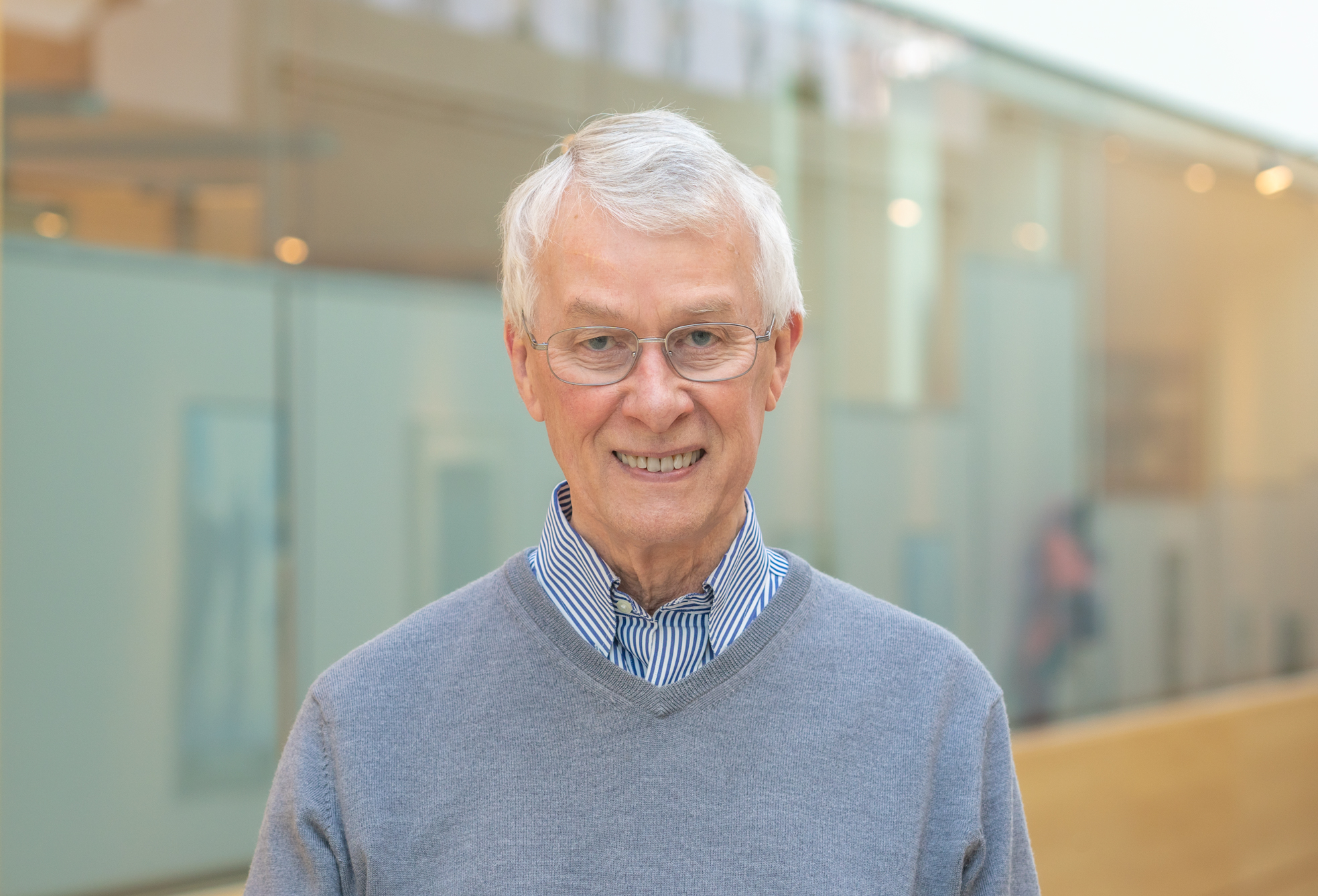Nobel Prize Winner Richard J. Roberts at VU to Discuss His Childhood Dream of Becoming a Detective and the Breakthrough in Genetics

On 1–3 September, Sir Richard John Roberts – Nobel Laureate in Physiology or Medicine, molecular biologist, and pioneer of bioinformatics – will visit Vilnius University (VU). His visit is part of a series of events to celebrate the 50th anniversary of modern biotechnology in Lithuania.
During the visit, the renowned scientist will meet the Rector of VU Prof. Rimvydas Petrauskas, Pro-Rector for Research Prof. Gintaras Valušis, and researchers and students of the Life Sciences Center. The guest will also participate in several public events.
Richard J. Roberts will give a public lecture titled ‘The Path to a Nobel Prize’ on 3 September at 11:00 at the VU Life Sciences Center (Saulėtekio al. 7, Room 106). This is a rare opportunity to hear his inspiring story of how he chose his professional and scientific path. At school, he dreamed of becoming a professional detective; he was interested in mathematics, but after reading John Kendrew’s book ‘The Thread of Life’ while studying chemistry, he decided to pursue molecular biology.
According to the Nobel Prize winner, scientific success goes hand in hand with failure, and true innovation arises when scientists dare to question established knowledge. During the lecture, he will discuss his most important and recent discoveries, the beginning of bioinformatics, and why fundamental science is essential to commercial research.
After the lecture, a public discussion will follow at 12:00 on ‘Breakthroughs in Biotechnology: How They Emerge and How They Change Our Lives’. Prof. Virginijus Šikšnys, one of the pioneers of the CRISPR gene editing technology, Dr Linas Mažutis, a developer of advanced microfluidic technologies, Prof. Arvydas Janulaitis, the founder of the Future Biomedicine Foundation, and Daniel Naumovas, Vice-Minister of Health, will join the Nobel Prize Laureate to discuss global trends in biotechnology.
The discussion will focus on trends in global biotechnologies, the reasons for Lithuania’s breakthrough in this field, and the way gene editing tools will change the treatment of cancer, as well as genetic, immune, infectious, and other diseases in the near future. Edmundas Jakilaitis, a journalist and TV presenter, will moderate the discussion.
R. J. Roberts’ discovery, which has radically changed our understanding of genes and genetic information, has inscribed his name in scientific history. His 1977 study showed that the genes of eukaryotic cells (human, animal, plant, etc.) contain the so-called ‘introns’ (DNA sequences that do not encode proteins) and that their removal (the splicing process) is an essential part of gene expression. As a result, a single gene can produce several different proteins, and gene expression is much more complex than previously thought. In 1993, Richard J. Roberts and his colleague Phillip A. Sharp were awarded the Nobel Prize in Physiology or Medicine for this revolutionary discovery.
Another important branch of R. J. Roberts’ work at Cold Spring Harbor Laboratory (USA) is related to the study of restriction-modification enzymes – the proteins that became key tools in early genetic engineering. These enzymes have led to the rapid development of recombinant DNA technology and the emergence of biotechnology companies such as ‘Fermentas’ or ‘New England Biolabs’. This field of research in Lithuania is being advanced further by Professor Saulius Klimašauskas at VU Life Sciences Center, who attended training at R. J. Roberts’ Laboratory and contributed to discoveries of global significance in the field of DNA modification enzymes.
R. J. Roberts currently works for ‘New England Biolabs’, a US company that produces and supplies reagents for life science research and offers products and services that support genome editing, synthetic biology, and next-generation sequencing.